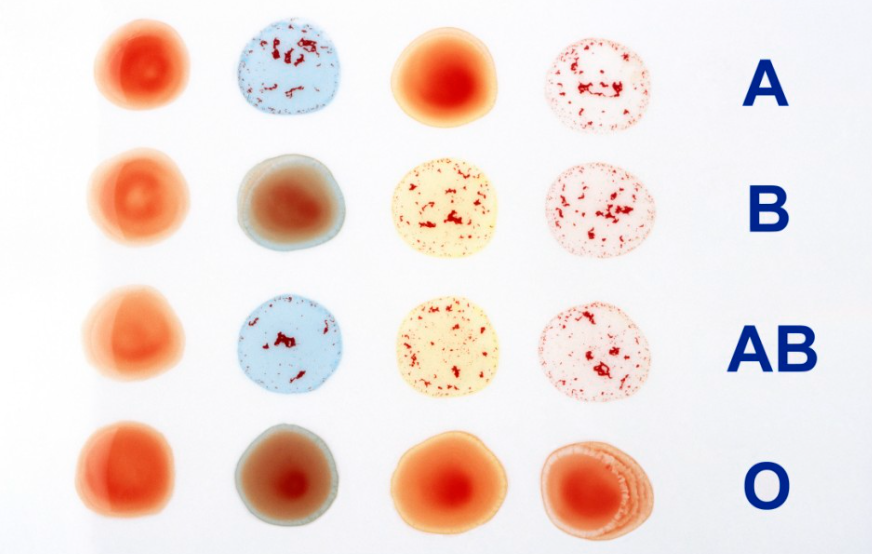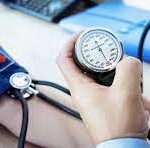 " title="A, B, AB, and O Blood Types Explained
" decoding="async" srcset="https://www.medrot.com/wp-content/uploads/2022/04/A-B-AB-and-O-Blood-Types-Explained.png 872w, https://www.medrot.com/wp-content/uploads/2022/04/A-B-AB-and-O-Blood-Types-Explained-300x191.png 300w, https://www.medrot.com/wp-content/uploads/2022/04/A-B-AB-and-O-Blood-Types-Explained-768x488.png 768w" sizes="(max-width: 872px) 100vw, 872px" />
" title="A, B, AB, and O Blood Types Explained
" decoding="async" srcset="https://www.medrot.com/wp-content/uploads/2022/04/A-B-AB-and-O-Blood-Types-Explained.png 872w, https://www.medrot.com/wp-content/uploads/2022/04/A-B-AB-and-O-Blood-Types-Explained-300x191.png 300w, https://www.medrot.com/wp-content/uploads/2022/04/A-B-AB-and-O-Blood-Types-Explained-768x488.png 768w" sizes="(max-width: 872px) 100vw, 872px" />The occurrence or absence of specific antigens — chemicals that can provoke an immune system response if they are harmful to the body – determines blood type. Healthy blood transfusions rely on rigorous blood type and cross-matching because certain antigens can cause a patient’s immune system to fight the transfused blood. The four key blood groups are A, B, AB, and O. Small chemicals (molecules) on the surfaces of blood cells determine the kinds.
People with one blood type may experience an immunological reaction if they accept blood from somebody with a distinct blood type. ABO incompatibility is the term for this situation. This situation is extremely rare nowadays, thanks to sophisticated testing methodologies.
Table of Contents
What distinguishes one blood group from the other?
Understanding antibodies and antigens are necessary to comprehend the differences among blood types. The four primary elements of human blood are red blood cells, white blood cells, platelets, and plasma, which is a liquid. Protein molecules located on the surface of red blood cells are known as antigens. They trigger or stimulate the immunological response in the body. Antibodies are plasma-bound protein molecules that play an important part in the body’s natural defense mechanism. They recognize foreign compounds, for example, and warn the immune system of their existence. The type of antigens and antibodies in human blood determines your blood type.
Blood groups should be coordinated in very particular ways for a successful transfusion to take place. It could be a matter of life and death if you get the appropriate blood transfusion.
Rh-negative blood is also supplied to Rh-negative individuals, while Rh-positive or Rh-negative blood is provided to Rh-positive people. In the case of plasma, the rules are the polar opposite.
- Type A blood will respond negatively to type B or type AB blood.
- Type B blood will respond negatively to type A or type AB blood.
- People with type O blood will respond to the blood of types A, B, and AB.
- People with type AB blood are immune to type A, type B, type AB, and type O blood.
Universal Donor
Every blood group could be transfused with O negative blood. Since type O has been the most prevalent blood type and type O blood group is the universal blood group required for urgent transfusions and immune weak babies, type O is frequently in low supply and great demand by health facilities.
Universal Recipient
The universal blood group of the receiver is AB positive. This indicates that an AB+ individual can safely accept blood from any of the blood groups. A successful blood transfusion or organs transplant works by comparing the appropriate blood type.
Because your heart is pumping to the remainder of the body, might seem clear that the blood group is linked to your heart. However, your blood type may place people at a greater risk for heart attacks and cardiovascular disease. This is due to the presence of the ABO gene, which is found in people with blood groups A, B, or AB. Type O seems to be the only blood group that lacks this gene.
If you do have the ABO gene and reside in a region where pollution levels are too high, you could be at a higher risk of myocardial infarction than someone who doesn’t.
Your blood group is simply one element that influences your chance of developing certain illnesses. “While your blood group might place you at a greater risk for some diseases, nothing can be said for certain. Knowing how your blood group affects your health is a wonderful start, but it’s also critical to visit your doctor for routine checkups and stay fit and healthy.
ABO System: As per the existence or lack of antigens A and B on RBCs, the ABO system distinguishes four blood groups.
- A antigens are found on RBCs and anti-B antibodies are found in the plasma of people with blood group A.
- B antigens are found on RBCs, and anti-A antibodies are found in the plasma.
- RBCs of blood group AB have both A and B antigens, but no antibodies in the plasma. In
- In blood type O red cells lack antigens A and B, and the blood contains both anti-A and anti-B antibodies. This blood group is by far the most common in the world.
Rh Antigens: The existence or lack of Rh antigens, or the Rhesus factor, on RBCs contributes to the blood type’s identity. The RhD could be one of the following
- Present or positive- RhD +
- Negative Or absent- RhD –
Since the Rh antigens are native to the system, any individual who has it will not produce antibodies against this, analogous to the ABO system; nevertheless, if a person is RhD negative, they would produce antibodies against this. And they are likely to react if an RhD-negative person is given RhD-positive blood.






